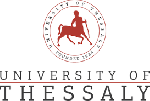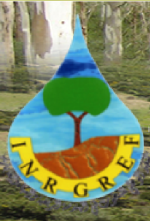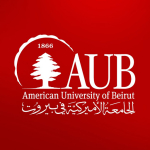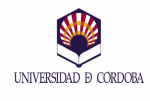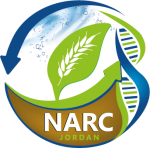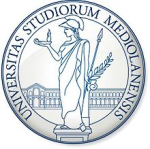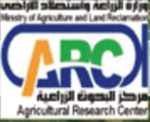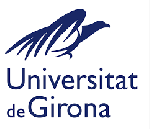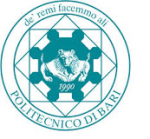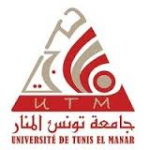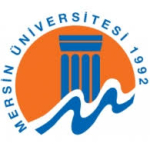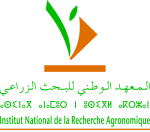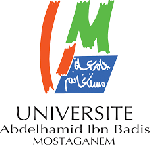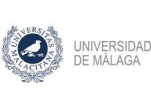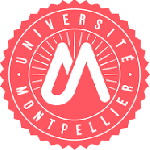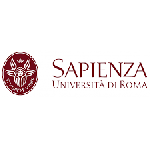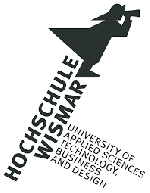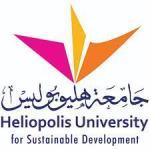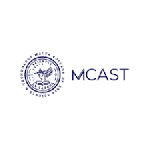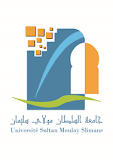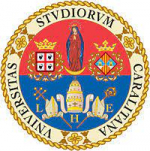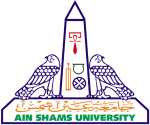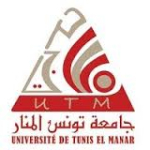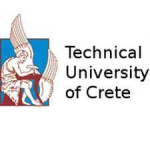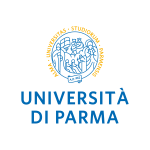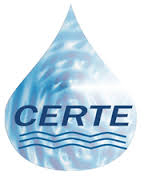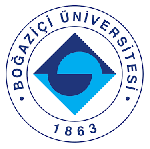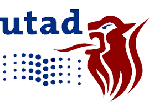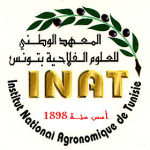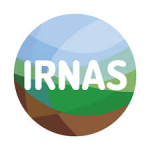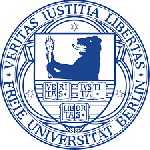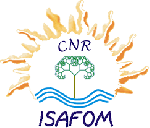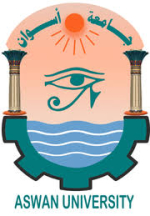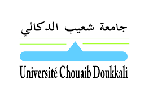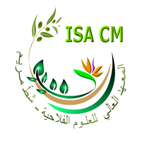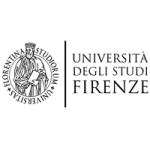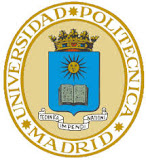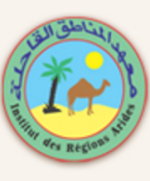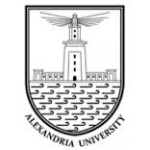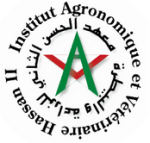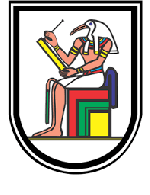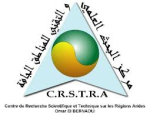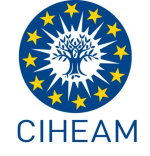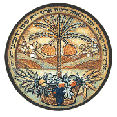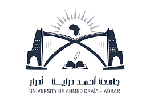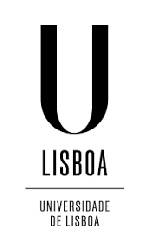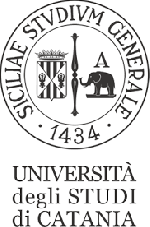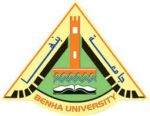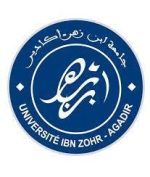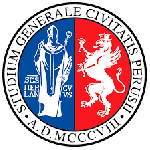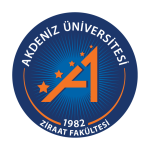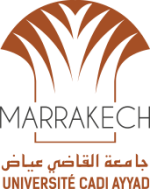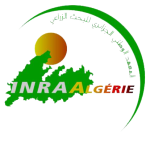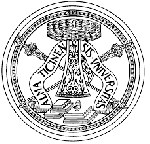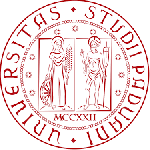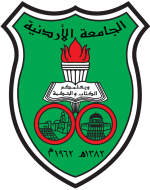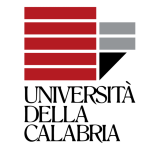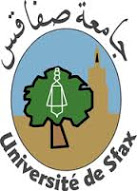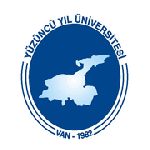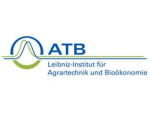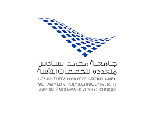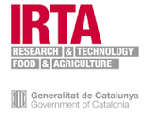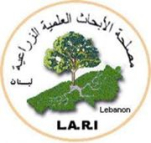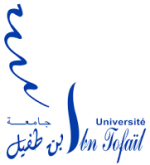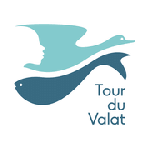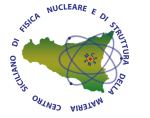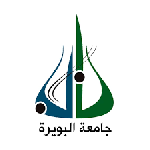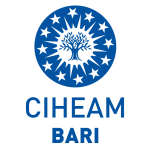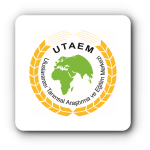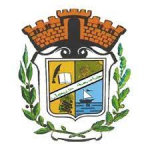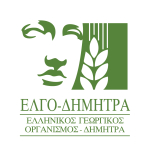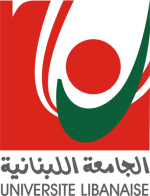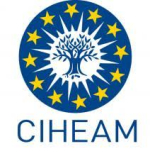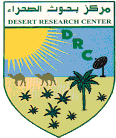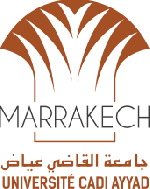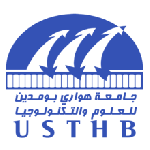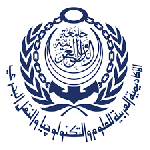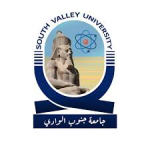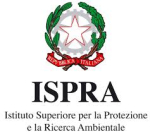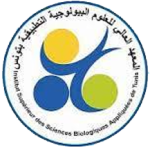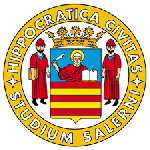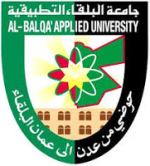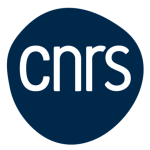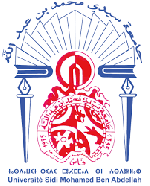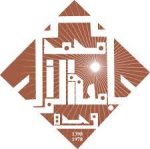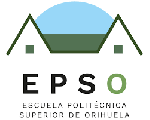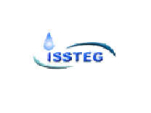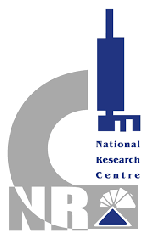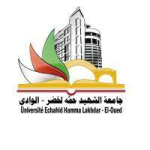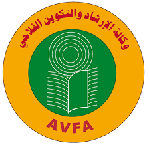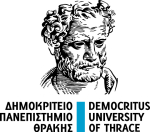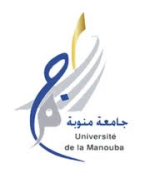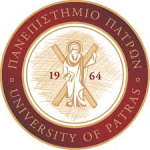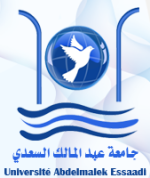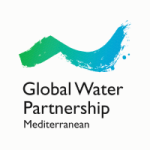Partnership for Research and Innovation in the Mediterranean Area - PRIMA
Overview: WATER - Integrated and sustainable management of water for arid and semi-arid Mediterranean areas
Project Officer Marco Orlando, Partnership for Research and Innovation in the Mediterranean Area - PRIMA
Team
members: 643
Partner
organizations: 343
Budget
EUR :
100.363.584
Projects: 54
Atlas
Outcomes and Impact
| Outcomes and Impact | Type | Indicators | View | |
|---|---|---|---|---|
| 1/ Novel articipatory processes for better water and innovation governance: 1.1 Number of innovative tools used to facilitate the dialogue such as participatory modelling, role-playing games, and web-based solutions for visualizing challenges related to climate change (>1 per site, total >4); 1.2 Number of co-created solutions targeting the 4 types of end-users (total ≥10 solutions, linked to other KPIs) considering social and political issues, as well as economic incentives and environmental benefits | development outcome | 1 | ||
| 2/ Enhanced monitoring and modelling solutions for better water use efficiency and soil conservation: 2.1 Number of new solutions based on satellite monitoring used by farmers and regulators (> 4 solutions); 2.2 Improvement of existing models to optimize irrigation at the farm scale and validation in demonstration sites (≥ 2) allowing a reduction of soil degradation by salinization and erosion (-20%), optimisation of crop irrigation scenarios (+20% in global irrigation efficiency) and higher irrigation productivity (+20%) | development outcome | 0 | ||
| 3/ Improved planning and operation of wastewater reuse systems in agriculture: 3.1 New Sanitation Safety Plan Tool (SSP-RA) demonstrated ( ≥ 2 sites, >50 farmers) with replication studies (≥ 2 sites), for cost-efficient management of risk by farmers and water utility managers (-10% costs of baseline) considering microbiological and chemical risk indicators (>25 parameters, including emerging risks) ; 3.2 Number of new rules of management adopted by local regulators (≥ 3 rules) from the cost-benefit evaluation of wastewater reuse under climate change scenarios, and creation of new irrigation community (1); 3.3 Increase wastewater reuse volume (+1Hm3/year by the end of project, +10Hm3/year next 3 years) improving water exploitation index (WEI) with benefits for environment (soil, surface water and groundwater) and cities. | development outcome | 0 | ||
| 4/ Provision of new solutions for Global Change adaptation: 4.1 Number of operational solutions co-created with the end-users (≥1 per category; ≥ 4 total) that allow a better resilience to climate events (e.g. new farm drought management plan triggered by a warning system), 4.2 Number of global change impact assessments in the demonstration sites (4 sites) with cost-benefit analysis of alternative solutions (optimum among 3 scenarios), allowing update of planning strategies (≥ 3 rules), | development outcome | 0 | ||
| 5/ Novel collaborative platform to deliver WEb applications4 for MEDiterranean region (WEMED): 5.1 Number of attendees to capacity building events on the development of applications to foster the use of free datasets, remote sensing and machine learning in the water and agriculture sectors (>100 attendees) , 5.2 Number of open-source algorithms developed and documented (> 10), number of application programming interface (API) and web apps developed and distributed in WEMED (≥ 8 applications) ; 5.3 Number of SMEs, start-ups and innovators developing solutions in WEMED during the project (>·4 SMEs and start-ups, > 50 innovators in MENA region) contributing to job creation, and higher incomes for clients | development outcome | 0 | ||
| xxx | development outcome | 0 | ||
| Introduction of participatory action research (through SHPs and farmers communities of practices) as an innovative strategy in the Mediterranean rice sector, to test and disseminate non-conventional irrigation methods and technologies tailored to local conditions. | research outcome | 0 | ||
| Field-tested water saving techniques tailored to the country-specific conditions of the Mediterranean area. The experimented techniques are: dry seeding and delayed flooding, alternate wetting and drying, lengthening of drying periods, reduction in irrigation inflow/outflow, hybrid irrigation, multi-nozzle sprinkler irrigation, surface and sub-surface drip irrigation, and waste-water reuse through sub-surface drip irrigation. The outcomes will be all the data needed to evaluate the economic, environmental and social sustainability of the proposed irrigation solutions. | research outcome | 0 | ||
| Use of state-of-the-art hydraulics, low cost sensors, and ICTs to develop prototypes for measuring and controlling water fluxes and soil water status, suitable for the water management in rice fields. | research outcome | 0 | ||
| Development of functional models for computing effective water efficiency and productivity by up-scaling farm efficiency data to the irrigation district scale, in order to prevent fake or rebound effects of water saving measures. Outcomes will allow the sustainability assessment of the irrigation solutions proposed at the irrigation district scale. | research outcome | 0 | ||
| Development and application of a comprehensive multidisciplinary indicator-based tool to assess the overall sustainability (economic, environmental, and social) of rice systems at on-farm scale and district scale. | research outcome | 0 | ||
| Assessment of the applicability of an extensive adoption of water saving techniques for rice production in Egypt, to contribute to food security in the country. | research outcome | 0 | ||
| Dissemination of project results through contributions and articles for technical and scientific conferences and trade and research journals, web-contents, organization of events (farmer field days, workshops, national and international conferences and other events organized). Dissemination is expected to generate knowledge on how to improve sustainability of rice production in the countries of the Mediterranean area, with particular attention to the adoption of water-saving techniques. | development outcome | 0 | ||
| O#1: hardware and software building blocks for low-cost, low-power and long-range connected generic IoT | research outcome | 0 | ||
| O#2: suite of open-source and modular components to build a complete sensor-gateway system with a fully customizable embedded web user interface | development outcome | 0 | ||
| O#3: embedded Decision Support System and AI-based processing framework to locally process collected data | development outcome | 0 | ||
| O#4: multi-level, multi-stream agricultural data framework for integration into advanced decision support system | research outcome | 0 | ||
| O#5: advanced soil-water-plant interaction models to increase accuracy of low-cost sensor systems | research outcome | 0 | ||
| O#6: SolutionLab approach to increase capacity building and initiate innovation towards exploitation | development outcome | 0 | ||
| I#1: Strengthening capacities of small-scale farmers to support transition towards the use of more efficient and effective irrigation options | development outcome | 0 | ||
| I#2: new irrigation technologies to achieve optimal crop yields, while ensuring water safety and security (water quality and quantity) | research outcome | 0 | ||
| I#3: Establishment of possible synergies with public authorities, as well as non-governmental actors (NGOs, private sector), to create the necessary policy/regulatory framework to support smallholder farming | development outcome | 0 | ||
| I#4: Decision support systems based on cost-effective devices and sensors for irrigation under water quality/quantity constraints | research outcome | 0 | ||
| I#5: Optimized balance between soil evaporation and plant evapotranspiration to improve plant water status and retention soil-water productivity | research outcome | 0 | ||
| I#6: Innovative earth observation and ICT tools-based, Decision Support Systems for planning adaptation to global changes and anticipating droughts | research outcome | 0 | ||
| Number and efficiency performance of new irrigation technologies to achieve optimal crop yields, while ensuring water safety and security (water quality and quantity) | development outcome | 0 | ||
| Strengthening capacities of small-scale farmers to support transition towards the use of more efficient and effective irrigation options | development outcome | 0 | ||
| Establishment of possible synergies with public authorities, as well as non-governmental actors (NGOs, private sector), to create the necessary policy/regulatory framework to support small-holder farming | development outcome | 0 | ||
| Increase profitability of irrigation as an economic activity which can generate sustainable income for local farmers and help recover equipment costs, while decreasing use of resource inputs (less water used to grow more higher-value crops) to preserve environmental sustainability | development outcome | 0 | ||
| Impacts on innovation capacity and scientific cooperation | research outcome | 0 | ||
| Impacts on new market opportunities | development outcome | 0 | ||
| Impacts on SDGs | development outcome | 0 | ||
| Impacts on EU strategies | development outcome | 0 | ||
| Potential impact on recovery after Covid-19 or other crises | development outcome | 0 | ||
| Low-cost TECH SOLUTIONS | research outcome | 0 | ||
| Off-the-shelf TECH SOLUTIONS | research outcome | 0 | ||
| Straightforward and integrated DSS | research outcome | 0 | ||
| Market analysis and replication | development outcome | 0 | ||
| Partecipatory approach | development outcome | 0 | ||
| 4 LLs created - KPI1 | research outcome | 0 | ||
| 1 Innovative modelling and optimisation procedure including NCW defined - KPI2 | development outcome | 0 | ||
| 4 Watershed management plans including one transboundary case developed in LLs, to be proposed to river basin management administration and local and national government - KPI3 | development outcome | 0 | ||
| 1 Regional land and water allocation plan for Mediterranean area - KPI4 | research outcome | 0 | ||
| 5 National policy documents for NCW upscaling (Italy, Spain, Egypt, Tunisia, Algeria) - KPI5 | research outcome | 0 | ||
| 1 Mediterranean policy document for the integration of land and water governance - KPI6 | development outcome | 0 | ||
| 1 Policy document for upscaling and out-scaling NCW at Mediterranean scale - KPI7 | development outcome | 0 | ||
| Organization of 3 online masterclasses on land and water governance at Mediterranean scale - KPI8 | development outcome | 0 | ||
| New technology tested, improved and adopted in the target countries | research outcome | 0 | ||
| Reduction in the contamination and salinization of water bodies by agri-food practices upscaling results from the farm to the whole water basin area considering the different sources of water contamination related to the agri-food activities | research outcome | 1 | ||
| Development of a site-specific solution to reduce nitrate leaching under specific Mediterranean soil conditions (i.e. salinity and sodicity) | development outcome | 1 | ||
| Evaluation of the risks linked to pesticides and other potential organic pollutants use on water and soil contamination and rehabilitation of polluted soils and water | research outcome | 1 | ||
| Development and on-site application of innovative and environmental-friendly technical solutions for water decontamination | development outcome | 1 | ||
| New modelling routines for determining the basic components of the water cycle, includingeconomic, social and technical aspects (e.g. groundwater accumulation and storage). | research outcome | 1 | ||
| Protocol for defining homogeneous irrigation zones | research outcome | 0 | ||
| Protocol for optimizing irrigation water application | research outcome | 0 | ||
| Protocol for implementing new irrigation system designs | research outcome | 0 | ||
| Protocol for applying advanced irrigation strategies | research outcome | 0 | ||
| Soil water balance model for irrigation scheduling based on low-cost soil moisture sensors | research outcome | 0 | ||
| Plant water status monitoring model based on multi-scale thermal images analysis | research outcome | 0 | ||
| A modular DST to provide accurate irrigation scheduling recommendations (agronomic module) and to identify the most appropiate irrigation solution (socio-economic module) | development outcome | 0 | ||
| - number of cost-effective N fertilization solutions that reduce N leaching (Target: 8); | research outcome | 0 | ||
| - amount of the expected reduction of N-NO3 leaching: from 10 to 30% with respect to conventional N fertilization management (depending on weather conditions and strategies adopted); | research outcome | 0 | ||
| - number of weed, pest and disease control solutions that reduce soil and water pollution (Target: 6); | research outcome | 0 | ||
| - amount of the expected reduction of herbicides: from 50% to 100%, with respect to herbicides broadcast application (depending on the fraction of chemical control included in each strategy); | research outcome | 0 | ||
| - amount of the expected reduction of copper up to 40% depending on the different low copper coumpounds; | research outcome | 0 | ||
| - number of irrigation solutions that improve irrigation water use efficiency (Target: 4); | research outcome | 0 | ||
| - number of stakeholders (farmers, extension agents, ag-consultants) attending demonstration events (Target: 100); | research outcome | 0 | ||
| - number of stakeholders adopting tested solutions (Target: 10). | research outcome | 0 | ||
| Innovative approach for the aquifer characterisation and monitoring using low-cost and non-invasive EO data | research outcome | 0 | ||
| New methodologies and tools for groundwater flow and geomechanical models | development outcome | 0 | ||
| Mapping of land subsidence and related hazards such as seawater intrusion area in coastal aquifers, land loss, flooding and groundwater abstraction effects that can provide different management strategies for policy maker and land reclamation authorities | development outcome | 0 | ||
| Best practises to support the decision makers | development outcome | 0 | ||
| Pilot study of wastewater menagement | research outcome | 1 | ||
| Stakeholder engagement and capacity building strategy | development outcome | 0 | ||
| Result of upscaling the process by simulation | research outcome | 0 | ||
| optimization of the process parameters | development outcome | 0 | ||
| sustainability of higher scale simulated technologies | development outcome | 0 | ||
| socio-economic and environmental benefits quantified | development outcome | 0 | ||
| Plan and implementation strategy per case study | development outcome | 0 | ||
| local/regional business plans in the water management sector | development outcome | 0 | ||
| Increase water productivity | research outcome | 0 | ||
| Strengthening capacities of small-farmers to support the transition towards the use of more efficient and effective irrigation options | development outcome | 0 | ||
| Analysis of the implementation impact of new technology | development outcome | 0 | ||
| Scientific impact on knowledge advance in plant physiology and agronomy | research outcome | 0 | ||
| Decision-support tools, based on new computational solutions resulting in the application and integration of sustainable practices into water governance models applied to agro-ecosystems | research outcome | 0 | ||
| Establishment of Mediterranean demo sites to test efficient local water governance at agro-ecosystem level, based on multi-actor approach, and to develop innovative policy solutions, traditional knowledge, practices and models for efficient water management and restoration of degraded water bodies | research outcome | 0 | ||
| Development of new water governance organizational models concerning water use at multiple levels (PPPP = People-Public-Private-Partnerships and mixed institutional types and designs, e.g., market- and state-based) protecting and respecting the social value of water | development outcome | 0 | ||
| Conflict mitigation and increased legitimacy of policies addressing water scarcity | development outcome | 0 | ||
| Reduction of the implementation gap between rules on paper and societal compliance on the ground | development outcome | 0 | ||
| Development and demonstration of innovative solutions to take advantage of non-conventional and low-quality water resources, rainwater harvesting, aquifer recharge and other nature-based solutions, including natural water retention measures, to mitigate regional water scarcity | development outcome | 0 | ||
| Characterization of local farming systems | research outcome | 0 | ||
| DAHBSIM and CLUE models | development outcome | 0 | ||
| Indicators of Sustainability | development outcome | 0 | ||
| Sustainability protocol | development outcome | 0 | ||
| Detailed report about the local water quality details at the demonstration sites | research outcome | 0 | ||
| Concept for the incremental process optimization at the demonstration site: Jordan | research outcome | 0 | ||
| Operational prototype of the optimized treatment system in Jordan | development outcome | 0 | ||
| Report detailing plant design, performance, cost and basic LCA | development outcome | 0 | ||
| Scientific paper about the brine management potential in the Mediterranean region | research outcome | 0 | ||
| Watermed Platform Architecture has been designed in D4.2 of WP4 | development outcome | 0 | ||
| Intermediate integrated WATERMED framework and tools have been described and main views and user interfaces for the different services offered by the platform(D4.3) | development outcome | 0 | ||
| First version of Benchmarking and Testing Environment for Watermed solutions have beeb decribesd and established in D4.1 | development outcome | 0 | ||
| A methodological framework for the analysis of management and governace of water resources used in agriculture with social, economic and environmental indicators have been developed in D6.1 indicators | research outcome | 0 | ||
| A plan for dissemination, exploitation and standarization activities has been developed, described and stablished in D 7.2 | development outcome | 0 | ||
| The description of each scenario regarding uses of water and agricultural practices in the 3 pilot areas has been investigated | research outcome | 0 | ||
| Economic dimension where the efficient use and fair distribution of water among agriculture, domestic, tourism and ecosystems services will contribute to alleviating poverty and support economic growth through the establishment of increased food profitability, new start-ups, SMEs and consequently employment opportunities; | development outcome | 0 | ||
| Environmental dimension where the adoption of advanced DSS tools and innovative technologies will enhance rapid intervention and long-term forecasting for maintaining ecosystem integrity through NbS and the reinforcement of strategic freshwater reserves by reducing seasonal mismatch and mitigating the negative impacts of climate change; | research outcome | 0 | ||
| Social dimension by investing engagement and active involvement of multiple stakeholders in a social learning process focusing on the relevance of the collective dimension of sustainable water management coupled with business and employment opportunities, particularly for youngsters and women. | development outcome | 0 | ||
| Political dimension where the transparent, democratic and inclusive governance of water use and distribution among vital and strategic sectors will support political stability through the resolution of inter-basin and intra-basin water-related conflicts and strengthening of operational arrangements for water cooperation; | development outcome | 0 | ||
| Capacity and knowledge development dimension which will emanate from raising awareness, gender balance, sharing information, technology acceptance and forming opinions. | research outcome | 0 | ||
| Development of a two-stage integrated purification system based on an innovative technology | development outcome | 0 | ||
| characterization and reuse granular sludge of waste water purification process as soil improvers for field crops; produce a matrix for fertilization through the use of excess sludge, without resorting to external fertilizers | research outcome | 0 | ||
| provide, thanks to the innovative integrated monitoring system, a continuous control of the quality of the purified water, also guaranteeing the possibility of early warning in case of failure in any of the purification phases | research outcome | 0 | ||
| trasportable Sludge batch reactor technology (SBR) | development outcome | 0 | ||
| small granular biomass sludge wastewater to treatment plants | research outcome | 0 | ||
| Total area affected by the REACT4MED restoration actions (Target: 2,000 km2). | development outcome | 0 | ||
| Number of proven and cost-effective solutions promoted (Target: 8 solutions, one per PA). | development outcome | 0 | ||
| Enhanced capacity for sustainable land management and soil restoration (Target: 32 capacity building events for practitioners and decision-makers; capacity development will be incorporated into at least 3 of the planned events per ERLL, including 1 event solely devoted to capacity development). | development outcome | 0 | ||
| Number of dissemination products (capacity development events, publications, etc.) addressing stakeholders outside REACT4MED (Target: 10 dissemination products). | research outcome | 0 | ||
| Number of decision support tools included in LanDS (Target: 5 tools). | research outcome | 0 | ||
| Number of stakeholders considering SLWM investment (Target: 80, 10 per Pilot Area). | development outcome | 0 | ||
| Number of SLWM investments within the ERLLs (Target: 8, one per Pilot Area). | development outcome | 0 | ||
| Youth and female empowered (Target: Out of involved stakeholders, 50% under 35 years old and 25% female). | development outcome | 0 | ||
| GIS database including soil and water bodies pollution and salinization data and rice production practices | development outcome | 0 | ||
| Spatially distributed, semi-distributed or concentrated agro-hydrological models to quantify mass transfer of agrochemicals, nutrients and salts to surface water and groundwater | research outcome | 0 | ||
| Pesticide and nutrient risk maps for surface and groundwater associated to agricultural practices in paddy fields | research outcome | 0 | ||
| Soil salinization risk map for surface and groundwater associated to agricultural practices in paddy fields associated to agricultural practices in paddy fields | research outcome | 0 | ||
| Guidelines to implement selected Best Management Practices (BMPs) | development outcome | 0 | ||
| Fact-sheets containing information about farming practices and related environmental impacts | development outcome | 0 | ||
| Fertilization strategies with alternative fertilizers | development outcome | 0 | ||
| Improving the functionality of agro-ecosystems and natural landscapes in 5 degradation hotspots through 13 NbSs | research outcome | 0 | ||
| Promotion of proven and cost-effective solutions to land, water and agro-ecosystem degradation through testimonial videos, a thematic park and an MoU | development outcome | 0 | ||
| Promote the scaling-out of sustainable management options supported by an appropriate enabling environment to combat land degradation, enhance productivity and livelihoods through 5 roundtables and Living Labs with more than 150 actors | development outcome | 0 | ||
| Contribution to the development of scientific decision-support tools and policy solutions to land and water degradation challenges through 3 decision support tools, 5 policy solutions and 4 policiy briefs | development outcome | 0 | ||
| Promote public and private investment opportunities for the adoption of sustainable land and management practices at 3 levels | development outcome | 0 | ||
| Decrease land degradation as a strategy to avoid migration and to increase productive livelihood, to ensure food security, and to contribute to improving employment, especially of women and youths through 5 Action plans for 2300 km2 (aggregate area) adressing LND and SDGs | development outcome | 0 | ||
| Co-designed FWC-NbS strategy | research outcome | 0 | ||
| 5 Case Studies | development outcome | 0 | ||
| 8 grey infrastructures optimized | development outcome | 0 | ||
| 7 natural infrastructures optimized | development outcome | 0 | ||
| 5 FWC-NbS to impact in different water cycle phases | development outcome | 0 | ||
| MedCoP | development outcome | 0 | ||
| FWC-NbS Catalogue & Implementation Guidelines for the Mediterranean Area | development outcome | 0 | ||
| FWC-NbS Training programme | research outcome | 0 | ||
| Training Materials | development outcome | 0 | ||
| Contribution to green job creation | development outcome | 0 | ||
| Assessment framework for developing FWC-NbS | research outcome | 0 | ||
| 5 Monitoring ICT Networks | development outcome | 0 | ||
| NATMed decision-making tool | development outcome | 0 | ||
| Datasets from Monitoring Programme reported to OPPLA repository and other repositorie | development outcome | 0 | ||
| Report on evidences found of the FWC-NbS | development outcome | 0 | ||
| Reports to validate the FWC-NbS under IUCN Global Standards | development outcome | 0 | ||
| Participatory governance plan and recommendations for replication | research outcome | 0 | ||
| Restoring degraded landscapes: improve the functionality of agro-ecosystems pastures and natural agro- ecosystems landscapes. | research outcome | 0 | ||
| Promotion of proven and cost-effective solutions to land, water (water quality and quantity) and agro- ecosystem degradation. | development outcome | 0 | ||
| Promote the scaling-out of sustainable management options supported by an appropriate enabling environment to combat land degradation, enhance productivity and livelihoods. | development outcome | 0 | ||
| Contribution to the development of scientific decision support tools and policy solutions to land and water degradation challenges. | research outcome | 0 | ||
| Promote public and private investment opportunities for the adoption of sustainable land and management practices. | research outcome | 0 | ||
| Decrease land degradation as a strategy to avoid migration and to increase productive livelihood, to ensure food security, and to contribute to improving employment, especially of women and youths. | development outcome | 0 | ||
| .Test and validate a groundbreaking ecosystem of innovation that combines an inclusive and transparent stakeholder engagement method (Talanoa Dialogue) with a multi-system modeling framework integrating climate, hydrology, agronomic and socio-economic systems in 6 water laboratories. | development outcome | 0 | ||
| .Assess the economic and environmental performance of 10 or more (10+) adaptation strategies in each lab, and identify 1 robust strategy in each lab. | development outcome | 0 | ||
| .Adoption of the TALANOA-WATER ecosystem of innovation as a governance model in 3+ water laboratories. | development outcome | 0 | ||
| .Compare socio-economic and environmental performance of each transformational adaptation strategy explored against a baseline (conventional adaptation/no adaptation) under 100+ scenarios and 10+ alternative model settings, in terms of equity, sustainability and economic growth. | research outcome | 0 | ||
| .Assess tradeoffs and co-benefits within and across systems (e.g. water conservation and quality v. income and food security). | research outcome | 0 | ||
| Serious game to demonstrate impacts of transformational adaptation policies and to compare them to the outcomes of the choices that would have been made otherwise (baseline), without backing from TALANOA-water knowledge. | research outcome | 0 | ||
| .Identify 6 robust strategies (one per laboratory) that show a satisfactory performance under most conceivable futures | research outcome | 0 | ||
| .All adaptation strategies considered will deal with irrigated agriculture, the largest water user in all water laboratories, and will provide a Comprehensive water accounting that follows the fractions approach, where Water use estimates will be obtained following FAO WaPOR’s approach. We will develop demand-supply balances and water exploitation indices in each laboratory (Adaptation strategies will feature irrigation technologies and services to optimize agricultural water management; alongside non-conventional resources, including wastewater, and their impact will be assessed locally (irrigation network) and basin-wide leveraging on the comprehensive accounting framework) | research outcome | 0 | ||
| .TALANOA-water will spur a transformational adaptation that creates and realizes governance and business opportunity potential towards sustainable and equitable growth in six pilot water laboratories. | development outcome | 0 | ||
| .Inclusive TALANOA Dialogue, devoid of blame, will work towards consensus building and prevent socio-economic conflicts in the use of water. | development outcome | 0 | ||
| .for each water laboratory we will identify and adopt, among those strategies that are robust, 1 preferred/optimal adaptation strategy in terms of social equity, economic efficiency and environmental sustainability. | development outcome | 0 | ||
| Train 3+ institutions (including relevant river basin authority and ministries) and 9+ individuals in each pilot water laboratory on integrated IWRM and CCA socio-hydrology modeling. | development outcome | 0 | ||
| .Train 3+ institutions (including relevant river basin authority and ministries) and 6+ individuals in each pilot water laboratory on Talanoa Dialogue. | development outcome | 0 | ||
| .Train 10+ PhD students on integrated socio-hydrology modeling and stakeholder engagement/Talanoa Dialogue/co-generation approach | development outcome | 0 | ||
| Substitute conventional modeling and decision-making by TALANOA-WATER ecosystem of innovation in 3+ laboratories | development outcome | 0 | ||
| .Ensure sustainability of the ecosystem of innovation in 3+ project laboratories for 3+ years after project ends, through legacy strategies (see WP5), including securing 50 000+ EUR/year from institutional- (e.g. basin authority), users’ associations- or industry-driven projects | development outcome | 0 | ||
| .mainstream project results in 4+ national and 1 supranational adaptation plan (EU) leveraging on project partners and stakeholders leading roles in them | development outcome | 0 | ||
| Improvement of knowledge and skills of farmers in pest management | development outcome | 0 | ||
| Raising awareness on better use of IPM approach | development outcome | 0 | ||
| Set up incentives to promote the marketing and use of biopesticides | development outcome | 0 | ||
| Implementation of sustainable practices to ensure a higher level IPM adoption in Europe and worldwide | development outcome | 0 | ||
| Reduction of chemicals of emerging concern (CEC) in effluents used for irrigation | development outcome | 1 | ||
| Reduction of salinity in effluents used for irrigation | development outcome | 1 | ||
| Reduction of pathogens and antibiotic resistance associated elements in effluents used for irrigation | development outcome | 1 | ||
| Understanding the short and long term effects of treated wastewater irrigation on physicochemical and microbial soil characteristics | research outcome | 1 | ||
| Understanding the short and long term effects of treated wastewater irrigation on plant stress associated parameters | research outcome | 1 | ||
| site characterization | research outcome | 0 | ||
| hydrological model | research outcome | 0 | ||
| hydrocarbon-degrading microbial consortia | development outcome | 0 | ||
| microbial indicators | research outcome | 0 | ||
| meio- and macro- faunal indexes | research outcome | 0 | ||
| biochar production for remediation treatment | development outcome | 0 | ||
| bioremediation treatment | development outcome | 0 | ||
| bioremediation benefits | research outcome | 0 | ||
| circular economy protocol | research outcome | 0 | ||
| risk assessment protocol | research outcome | 0 | ||
| Economic impact: Improved yield, less fertilizer, lower water treatment cost for fresh water provision => assessment via modeling on water catchment level => revenue comparison. Co-creation in living labs and stimulation of entrepreneurial activity will lead to spin-offs, e.g., agricultural services or start-ups Development of a site-specific solution to reduce nitrate leaching under specific Mediterranean soil conditions (i.e., salinity and sodicity) => Runoff water recycled back to quinoa field crop => depending on environment and sea-son 20 to 50% => pump volume Runoff water treated hydroponically and used for groundwater recharge in winter => depending on environment 30 to 100% => volume in interim storage, recharge volume Groundwater depleted from nitrate and recycled back into the ground water aquifer during summer => 30 to 100l per m² of hydroponic area => pump & recharge volumes | development outcome | 0 | ||
| Social impact: Improved human health through more stable food production and reduced nitrate levels in drinking water => estimation on potential impact on basis of measurements con-ducted and comparison with literature data => expressed in pollutant specific indicator values | development outcome | 0 | ||
| Environmental impact: Replenishment and improved quality of groundwater resources positively influences soil quality and biodiversity => measurement of ground water replenishment => estimation on environmental impact on basis of changes in ecosystem services Reduction of contamination / salinization of water bodies by agri-food practices; up-scaling results from farm to the whole water basin area =>Pollutants contained in runoff reaching natural bodies of water => 50% reduction of NO3-load => measurement concentrations in water and biomass Quantification of reduced evapotranspiration under PV and IWRM on top-soil salinity => significant reduction over control => soil EC measurement | development outcome | 0 | ||
| Scientific/ technological impact: Novel technical setups with various new developments (encapsulated microbes for water and soil remediation; semitransparent photovoltaic panels, novel AI algorithms) and improved components (hydroponic systems, RO/NF-combinations) will spur the creation of an innovative network in the energy-agri-water nexus, novel services and local innovation cycles => we expect more than 2 patents and at least 6 publications, a new and robust modeling tool for accurate simulations of the energy-crop-water nexus, benchmarking progress with regard to IWRM, hydroponics, agrivoltaics and other technology implemented Evaluation of the risks linked to pesticides and potential pollutants use on water and soil contamination and rehabilitation of polluted soils and water => Quantification of pesticides removed from runoff by the hydroponic system and by the engineered media => micropollutants below detection limit => sampling in-situ and if initial concentrations too low addition of micropollutants for laboratory validation of removal efficiency Soil and water monitoring at reference sites will reveal, whether the current surveil-lance measures with regard to pesticides and other contaminants are adequate to react timely and cost-benefit-efficient => project data provide evidence base for risk management and potential policy adaptation Monitoring-based modeling provides evidence-based, effective decision support tools Development and on-site application of innovative and environmentally friendly technical soil/ water decontamination =>At least two nature-based remediation techniques (hydroponics and microbiological treatments) will be adapted, optimized and validated in field tests => Novel microbiological encapsulation & treatment routines will become available => combinatorial effectiveness will be assessed | research outcome | 0 | ||
| Political impact: Successful demonstration of the remediating effects, situation-dependent combinations of water treatment options have on the quality and quantity of surface and groundwaters, will support investment and policy decision in Mediterranean countries => study sites can become “reference sites” and training centers to inform and train stakeholders from other regions and countries Integration of water authorities and political stakeholders makes sure, key performance indicators are considered in the socioeconomic and catchment modelling tools => applicability and appropriateness of solutions will be secured from the beginning | development outcome | 0 | ||
| Reduction of surface and ground water contamination by decreasing the use of nitrogen fertilizers in 30% to 50% in agricultural practices | development outcome | 0 | ||
| Development of a site-specific solution to reduce nitrate leaching under specific Mediterranean soil conditions | development outcome | 0 | ||
| Natural reduction of nitrogen fertilizers in horticultural will help restore polluted soils and water bodies without stopping the agricultural activity | development outcome | 0 | ||
| Seleccton of NBI plants and natural products who help naturally restore damaged soils and water bodies. | research outcome | 0 | ||
| Project website | development outcome | 0 | ||
| Press releases | development outcome | 0 | ||
| Press mentions | development outcome | 0 | ||
| Project flyer | development outcome | 0 | ||
| Website sessions | development outcome | 0 | ||
| External Events | development outcome | 0 | ||
| Publications | research outcome | 0 | ||
| Social media | development outcome | 0 | ||
| Videos | development outcome | 0 | ||
| Dissemination events across the four pilots | research outcome | 0 | ||
| Living Lab and Training courses | development outcome | 0 | ||
| Training course participants | development outcome | 0 | ||
| Participation in Conferences | research outcome | 0 | ||
| By developing and integrating innovative treatment and valorisation technologies of different agri-food waste streams, typically causing pollution of groundwater and water bodies, the MedInCircle project will establish new standards/recommendations in terms of preservation of the water resources from contamination and salinization. Furthermore, by implementing the proposed water treatment solution, irrigation systems using flood irrigation will be able to intercept and treat drainage water (on average 50% of the initial freshwater input), thereby completely avoiding the contamination and salinization of water bodies. Finally, the project will further adopt a circular thinking approach to ensure that the relevant agri-food activities at the water basins level will be considered. | development outcome | 0 | ||
| The collection of agricultural drainage water, which potentially contains high salinity and NO3- levels, will strongly limit NO3- leaching into water bodies, assuring that NO3- concentration in groundwater will not increase above 10% of background levels as an effect of ferti-irrigation, while guaranteeing N supply to agricultural fields via MBMBR-based NO3- generation. The NF/RO treatment of the collected drainage water will avoid the increase of salinity in the agricultural soil. | development outcome | 0 | ||
| The combination of novel treatment technologies and advanced monitoring techniques and protocols will set new standards for water and soil protection from both conventional and emerging pollutants. Monitoring activities will target 8 kinds of inorganic contaminants as well as 10 organic contaminant groups. Risk Quotients will be calculated for all organic micropollutants having a NOEC/PNEC value and being detected in the water streams meant for reuse. | research outcome | 0 | ||
| The developed MBMBR platform will be characterized by modularity and scalability to ensure its applicability on-site and to further adapt it to other different possible contexts. Also, combination of NF/RO and MBMBR treatments will enhance the removal efficiency of micropollutants, enabling the safe reuse of at least 70% of the treated excess drainage water. | development outcome | 0 | ||
| BOD levels in the treated wastewater and N use efficiency in crops will be monitored to evaluate the effectiveness of the proposed technical solutions for wastewater collection, treatment, and reuse as well as for ferti-irrigation practices. To allow the discharge of the MBMBR effluent into a receiving water body during irrigation off season, the MBMBR system will assure compliance of effluent concentrations with the European regulation, i.e., BOD5 below 25 mg/L. During the irrigation season, NO3- leaching into groundwater will be minimized through plant uptake and the water drainage collection system, preventing an increase of NO3- levels in the aquifer, while BOD5 levels will be maintained ≤10 mg/L to comply with quality A standard of the EU water reuse regulation 2020/741. | development outcome | 0 | ||
| The MedInCircle project will target the development of three independent and yet potentially integrated practical solutions: • Development of a wastewater treatment system for the treatment and reuse as ferti-irrigation of domestic wastewater and agricultural drainage water; • Development of a treatment and valorisation system for agri-food waste and secondary sludge for the production of organic fertilizers (i.e., hygienized high-solid digestate) and agronomic bioinoculants (i.e., PGPR); • Development of a system for the treatment and valorisation of agro-industrial wastewater for the production of fertilizing microbial biomass and biostimulants. | development outcome | 0 |
Priority Areas
Projects
| Acronym | Project Title | Year | Section | Project Coordinator | Coordinating Body | Budget | Start Date | End Date | View |
|---|
Publications and Outreach
| Priority Area | Project Acronym | Type of the scientific paper | Title of the scientific paper | Authors | DOI | DOI | Download link | Download link |
|---|
Personnel Involved
Partners



































.JPG)














































.jpg)














.png)

.jpg)







